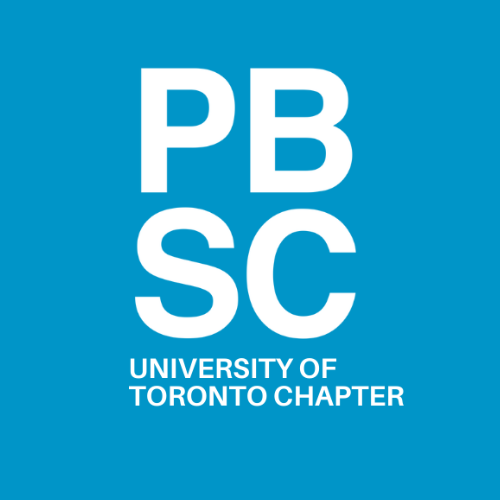The 519 Refugee Mock Hearing Program
Project Type: Client services (court forms, shadowing, mock hearings, intake, legal clinic, etc.)
Fields of Law: Immigration Law and Refugee Law
Positions Available: 2
About the 519:
The 519 is committed to the health, happiness and full participation of the LGBTQ2S communities. A City of Toronto agency with an innovative model of Service, Space and Leadership, we strive to make a real difference in people’s lives, while working to promote inclusion, understanding and respect.
Project Details:
Over the past decade there have been various legislative changes that have resulted in significantly increased wait times for refugee claimants from the time of application to the date of their hearing. The 519 Refugee Mock Hearing Program provides support and guidance to LGBTQ+ refugee claimants. The individuals supported through the mock hearing are claimants who have and upcoming hearing with the Refugee Protection Division (RPD) of the Immigration and Refugee Board (IRB) to determine whether they can be granted Convention Refugee Status based on their Sexual orientation, gender identity/expression and/or sexual characteristics (SOGIE-SC claims).
This program allows individuals to get guidance on how to effectively tell their life experience to a stranger through written and oral testimonies. The mock hearing provides an opportunity for claimants get assistance with drafting/structuring their narrative/claim; have a paper review claim or a simulated hearing with the student volunteers and lawyer supervisor – a practicing immigration and refugee lawyer in the province of Ontario. The objective of the mock hearing familiarizes claimants with the hearing process in an affirming environment and provide an opportunity for the claimant to take a more critical look at the implications or their claim.
Student volunteers are expected provide guidance to claimant on how to structure their claims; to review the claimants Basis of Claim (BoC) prior to each mock hearing. They are also expected to review the IRB’s National Documentation Package for the country the claimant is seeking to be protected from. Student volunteers will then identify any key issues and draft questions which may be explored during the mock hearing. They will be expected to consult with their supervising lawyer prior to each mock hearing/paper review. Students will also be required to carry out some client communication with clients by placing calls and requesting for documentations/evidence or completion of application. One student selected will support the intake for the Narrative Support & Writing program along with the Refugee Mock Hearing program by reviewing intake requests as aligned with selection criteria and communicating with eligible community members. The student will support providing legal information, education and referrals as well as scheduling hearings. Time commitment is up to five hours per week.
During the hearing, Student Volunteers will play the role of observer and or client representative. This will entail advocating for the client, providing a brief introduction and explanation of the hearing process, taking notes during the mock hearing, and debriefing with the client and supervising lawyer to provide feedback. Depending on the student’s comfort level, there may be an opportunity to play the role of adjudicator as the student progresses, allowing the Supervising Lawyer to take on the role of counsel for the claimant. *Note: this will be at the discretion of the Partner Organization and Supervising Lawyer. Mock hearings will be approximately 3 hours long and determined on fixed dates in conjunction with the Partner Organization.
Will the student(s) be expected to show up for regular shifts each week, or is the schedule flexible?
Regular shifts will be determined in conjunction with the partner organization depending on when mock hearing can be scheduled. Mock hearings will be scheduled based on the availability of the supervising lawyers, student volunteers, and the client.
All mock hearings are currently being conducted virtually using The 519’s Zoom or Teams platform. Students and their supervising lawyer can connect via phone or email. We will assess returning to in-person hearings and other opportunities with students as they progress, based on accessibility, availability, and willingness.
Generally, mock hearings take place on Wednesdays. Student volunteers will be assigned two mock hearings per month and are expected to work with the partner organization to determine which dates are most appropriate.
Mock hearings will take place twice per week at 5:30 pm - 8:00 pm EDT. Student volunteers are expected to arrive at 5:00 p.m EDT – thirty minutes before the hearing – to ensure sufficient time to connect with their partner organization and discuss any questions they may have.
It is an expectation that student volunteer will meet with the supervising lawyer/organization at least once per month to provide an update on cases and seek guidance as needed. Student volunteers should take the initiative to schedule pre-determined meeting times with the partner organization contact at the outset of their placement.
Requirements & Expectations:
Student volunteers must have completed at least their first year of law school.
Preference will be given to student volunteers who have taken or are enrolled in an immigration and refugee law course.
Given the background of clients being served, we welcome applications from trans and gender diverse, Black or POC students. Volunteers selected must demonstrate ongoing and meaningful allyship with the Two-Spirit, Trans, non-binary and non-gender conforming and gender diverse communities. Volunteers must have strong organizational and time management skills, strong attention to detail, record-keeping and communication with supervisor skills, and experience with client relations or communications
Additional assets include:
- Personal or professional experience working with Two-Spirit, Trans, non-binary and non-gender conforming communities.
- Experience in clinical, client-facing, and/or tribunal setting.
- Social work background – experience working with LGBTQ+ communities and survivors of trauma.
- A strong sense of anti-oppression principles•Experience in clinical, client-facing, and/or tribunal settings.
